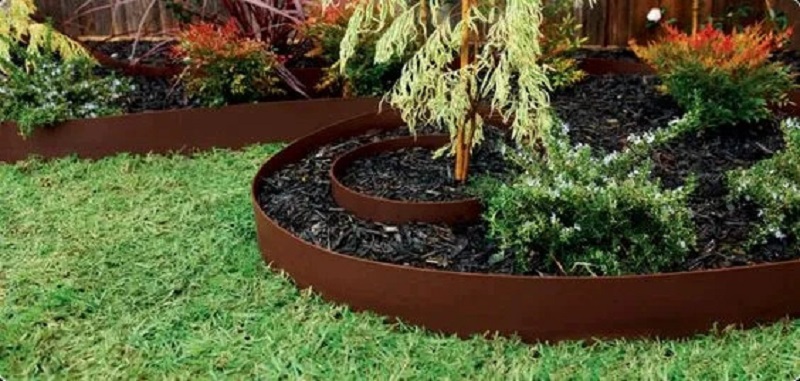Does Steel Garden Edging Rust?
Nov 06,2023
View: 552
Steel garden edging is a popular choice for many homeowners and landscapers due to its durability and clean, modern look. However, one common concern among those considering steel edging is whether or not it will rust over time.
The answer to this question is: it depends on the type of steel used and the conditions in which it is installed. While all steel will eventually rust if left exposed to the elements for long enough, some types of steel are more prone to rust than others.
1. Stainless Steel:
Stainless steel is a material that is extremely resistant to rust because it contains chromium and nickel, which gives it excellent corrosion resistance. Stainless steel garden edging will not rust and will maintain its appearance even in humid environments or when exposed to various weather conditions. Its modern appearance and sturdiness make it an attractive option. Stainless steel garden edging is generally slightly more expensive than other styles, but its resistance to rust and durability often make it a worthwhile investment.

2. Carbon Steel:
One type of steel commonly used for garden edging is plain carbon steel. This type of steel is inexpensive and easy to work with, making it an attractive choice for those on a budget. However, it is also highly susceptible to rusting. If plain carbon steel is used for garden edging and not properly maintained, it will likely begin to rust within a year or two. To prevent rust in plain carbon steel, regular maintenance and protection are essential.
3. Galvanized Steel:
Another option for garden edging is galvanized steel. Galvanized steel has been coated with a layer of zinc to protect it from rust and corrosion. This coating forms a barrier that helps prevent the steel underneath from rusting. While galvanized steel is more resistant to rust than plain carbon steel, it is still possible for it to rust over time, especially if the zinc coating becomes damaged due to wear and tear. Regular inspections and touch-ups are advisable for maintaining galvanized steel garden edging.
4. Corten Steel (Weathering Steel):
Corten steel, also known as weathering steel, is another popular choice for garden edging. Corten steel is specifically designed to form a protective layer of rust on its surface, which actually helps to prevent further rusting. This unique quality sets it apart from other types of steel. However, it's important to note that it can take several years for this protective layer to fully develop, so corten steel garden edging may look rusty when first installed. Over time, the rusted appearance enhances the aesthetic appeal of the garden edging while maintaining its structural integrity.

In general, steel garden edging will last longer and be less prone to rust if it is properly installed and maintained. Here are some tips for ensuring the longevity of your steel garden edging:
Proper Installation:
Ensure that the edging is correctly installed at the right depth and secured in place to minimize exposure to moisture and other corrosive elements.
Regular Cleaning:
Keep the edging clean and free of debris by periodically removing dirt, leaves, and other organic materials that can trap moisture against the steel.
Rust Inhibitors and Sealants:
Consider applying a rust inhibitor or sealant to your steel garden edging, especially if it's made from plain carbon steel or galvanized steel. These products can provide an additional layer of protection.
Quality Materials:
Choose high-quality steel edging from a reputable supplier. Avoid using cheap, low-quality materials that may not have the same level of rust resistance.
In conclusion, steel garden edging can be an excellent choice for its durability and aesthetic appeal, but its susceptibility to rust depends on the type of steel used and the maintenance efforts put in place. By understanding the characteristics of different steel options and taking proactive measures to prevent rust, you can enjoy the benefits of steel garden edging for years to come.